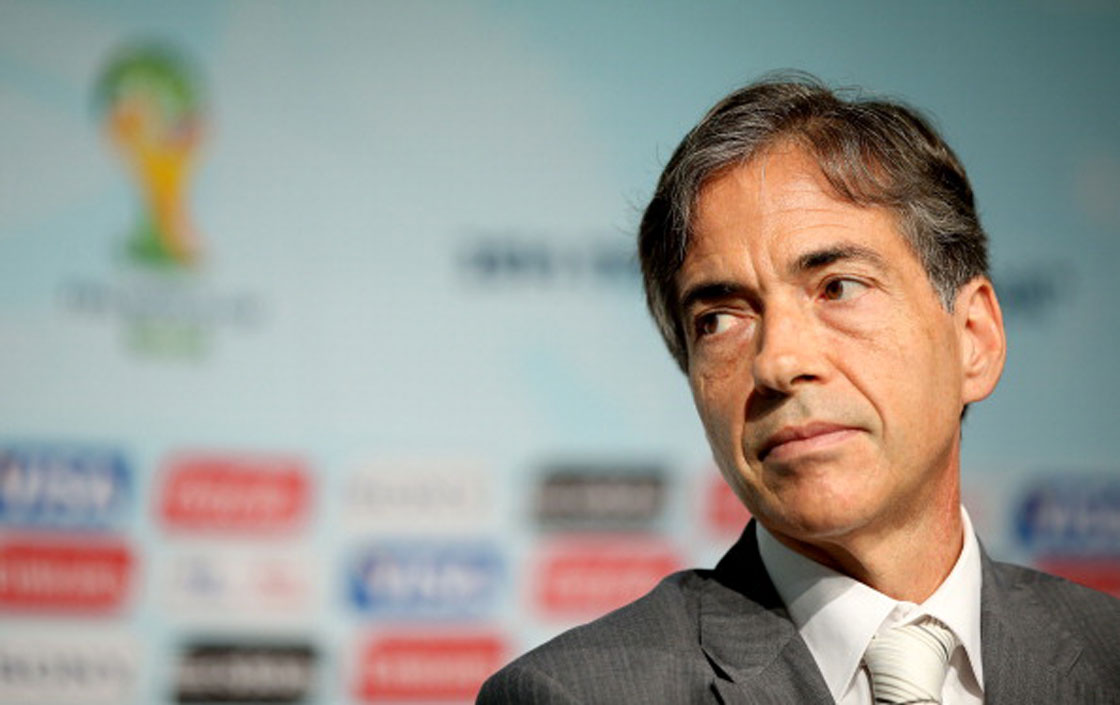RIO DE JANEIRO – Brazil’s Deputy Sports Minister Luis Fernandes said Wednesday that Brazil would organize a successful World Cup despite what he called “prejudice” against so-called developing countries as they try to organize mega-sports events.

“We are confident that Brazil will surprise the world with a successful event in the World Cup,” Fernandes said, speaking Wednesday with reporters in a teleconference.
“There is no embarrassment and no panic,” he added. “We are absolutely confident, excited and proud that we will deliver a fantastic World Cup in Brazil. That’s the general atmosphere in government. We are absolutely confident.”
Brazil’s preparations of the World Cup, which opens June 12 in Sao Paulo, have been characterized by delays building or remodeling 12 stadiums, unfinished upgrades to airports and transportation, and criticism the $11.5 billion being spent should have been used to improve the country’s poor schools and rundown hospitals.
Last week Ronaldo, who won two World Cups with Brazil and has worked with local World Cup organizers, said he was “embarrassed” by the “total confusion and lateness” of stadiums and allied infrastructure.
Fernandes defended the preparations, said the World Cup investment would boost the economy, and argued that “developing” countries are judged differently as they plan the World Cup or Olympics.
“There are sectors in society in general that have prejudice with respect to the capacity of developing countries in general … to deliver this kind of event,” Fernandes said, echoing a statement made recently by his boss — Sports Minister Aldo Rebelo.
“There is absolutely no contradiction between a developing country hosting a major event such as the World Cup or the Olympics Games, and increasing investment in education and in other public areas.”
As Fernandes spoke, Jerome Valcke — the top FIFA official in charge of the World Cup — urged organizers in the northeastern city of Natal to move faster.
“Race against the clock,” he said on Twitter. “We need full commitment from all parties in Natal to ensure all will be in place & tested.”
Rio de Janeiro’s organization of the 2016 Olympics is also facing widespread criticism with many IOC members speaking openly about poor planning and delays.
Brazil has a $2.5 trillion economy and is usually listed as the world’s sixth or seventh largest. The credit rating agency Moody’s recently said the World Cup would have little impact on its economy, given its size and the length of the event.
Fernandes said Brazil would allow peaceful strikes or demonstrations during the month-long championship, but promised violence would not be condoned.
“We do not see any problem in peaceful demonstrations,” he said. “What we cannot tolerate … are acts of violence or vandalism, and we will have no tolerance for those.”
“We can guarantee everyone that the security of the World Cup will be guaranteed by the Brazilian state,” he added.
Brazilian defence officials said last week about 160,000 police and soldiers would be deployed during the World Cup at a cost of $856 million. Daily demonstrations — centred on rising prices and poor public services — took place a year ago during the Confederations Cup, a warm-up for the World Cup.
Brazil has also beefed up security around its border with 10 neighbouring countries, and has received specialist military and police training from several countries including the United States, Japan, France, Britain and Germany.
___
Stephen Wade on Twitter: http://twitter.com/StephenWadeAP


Comments